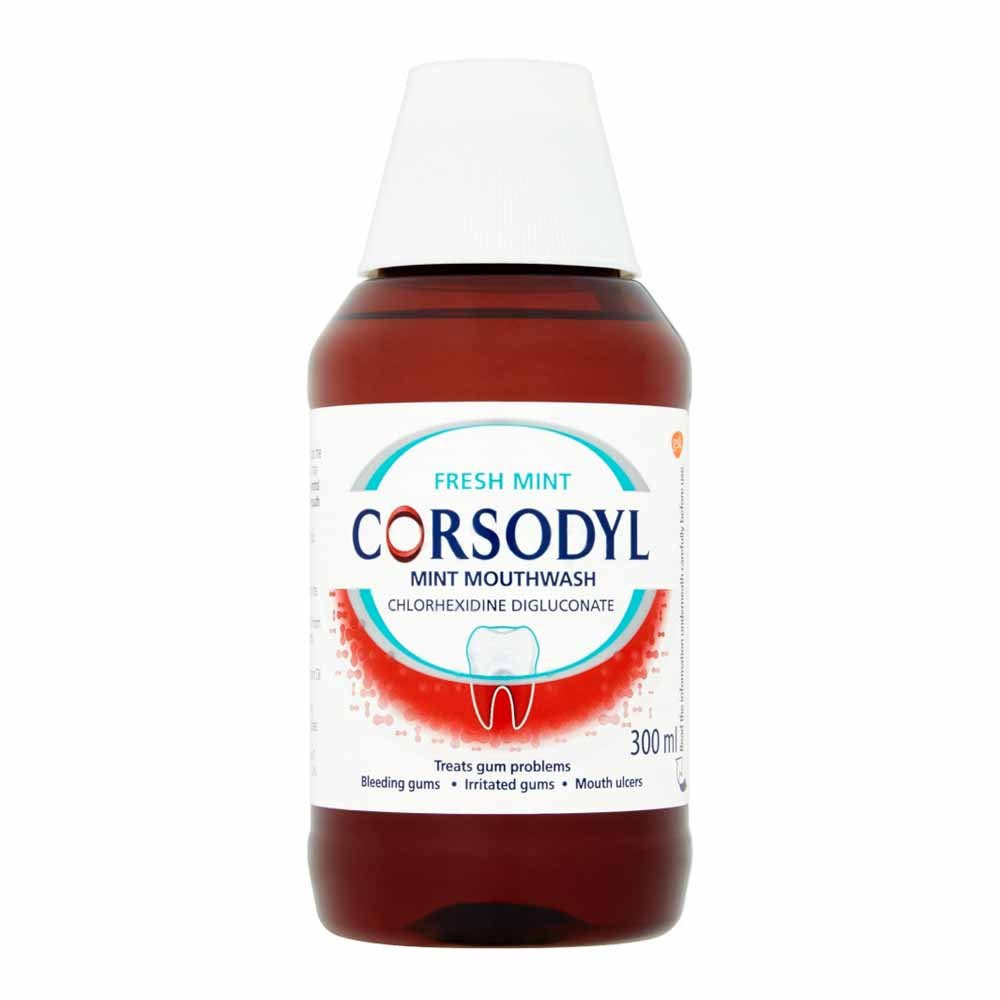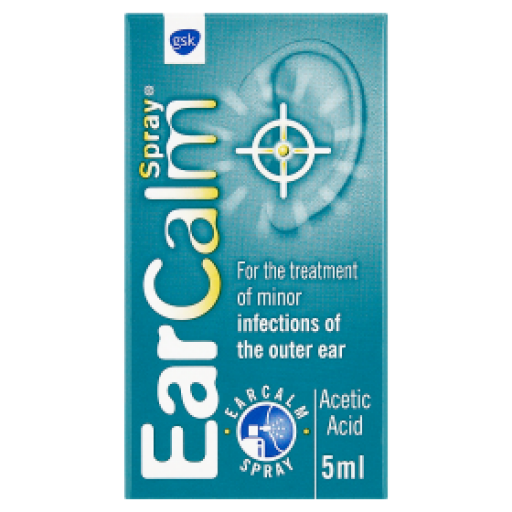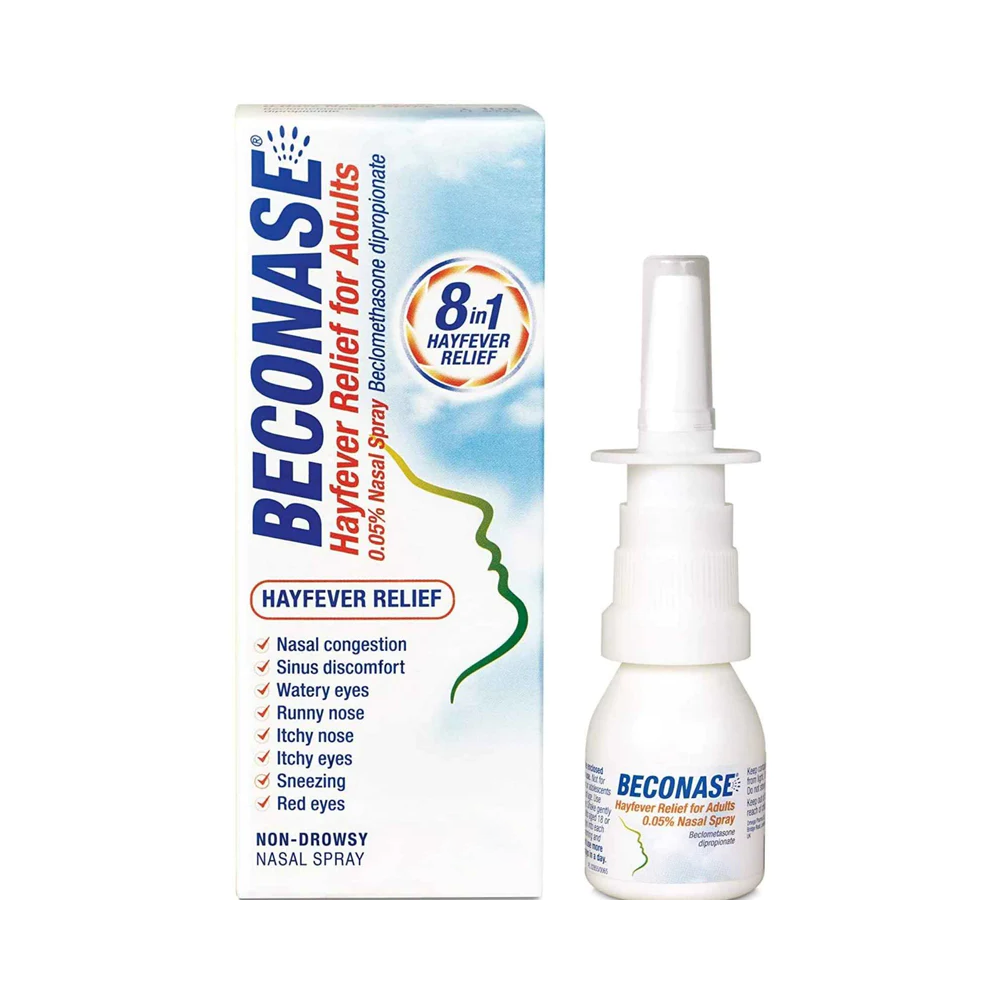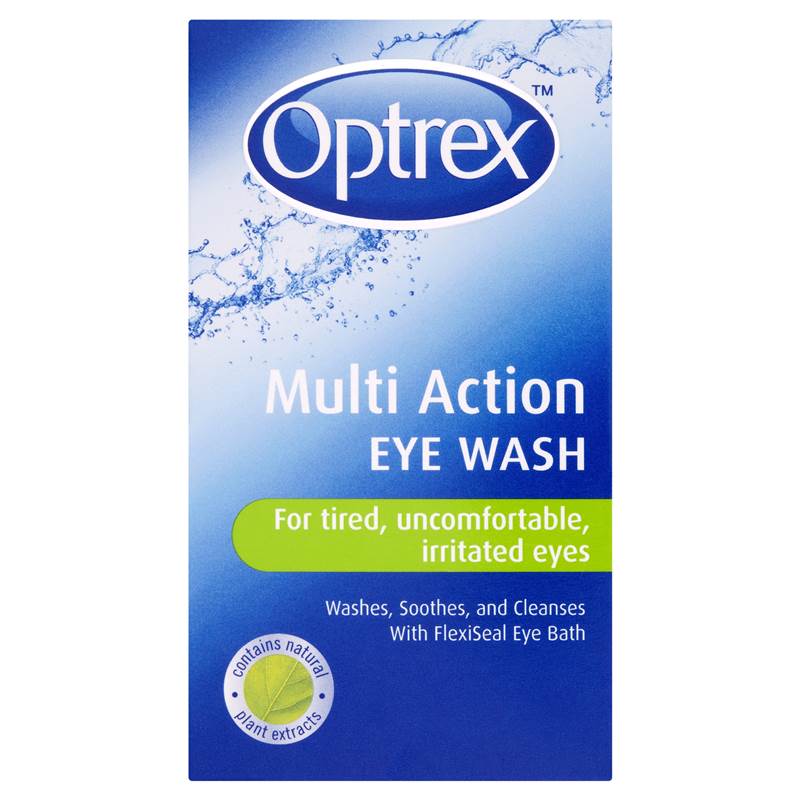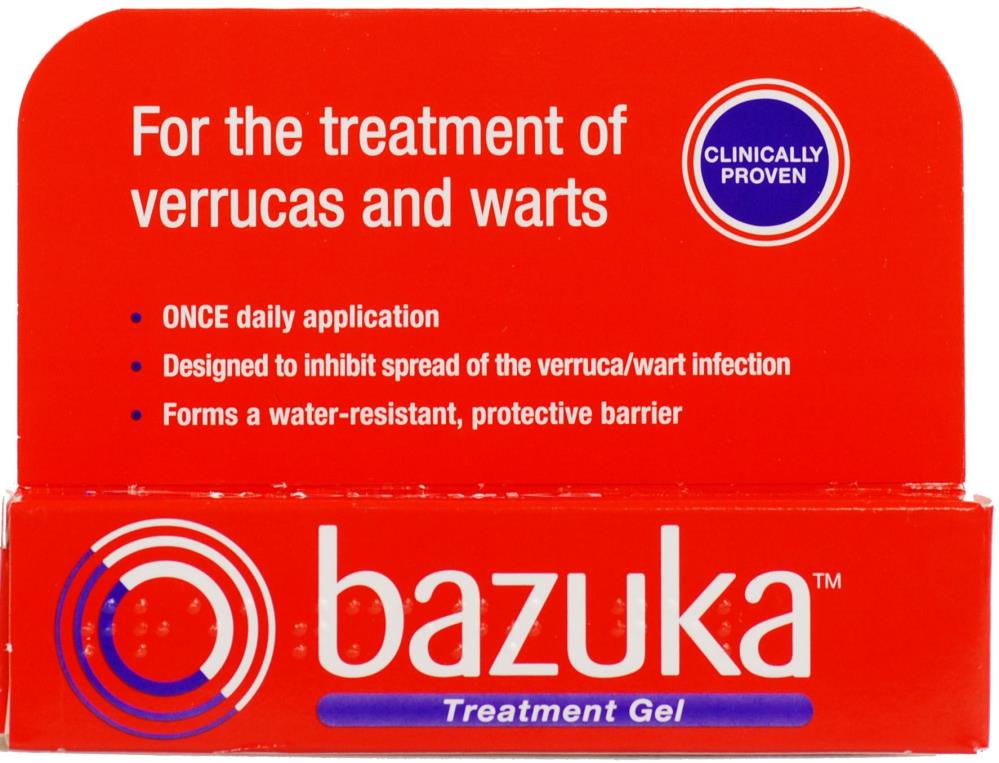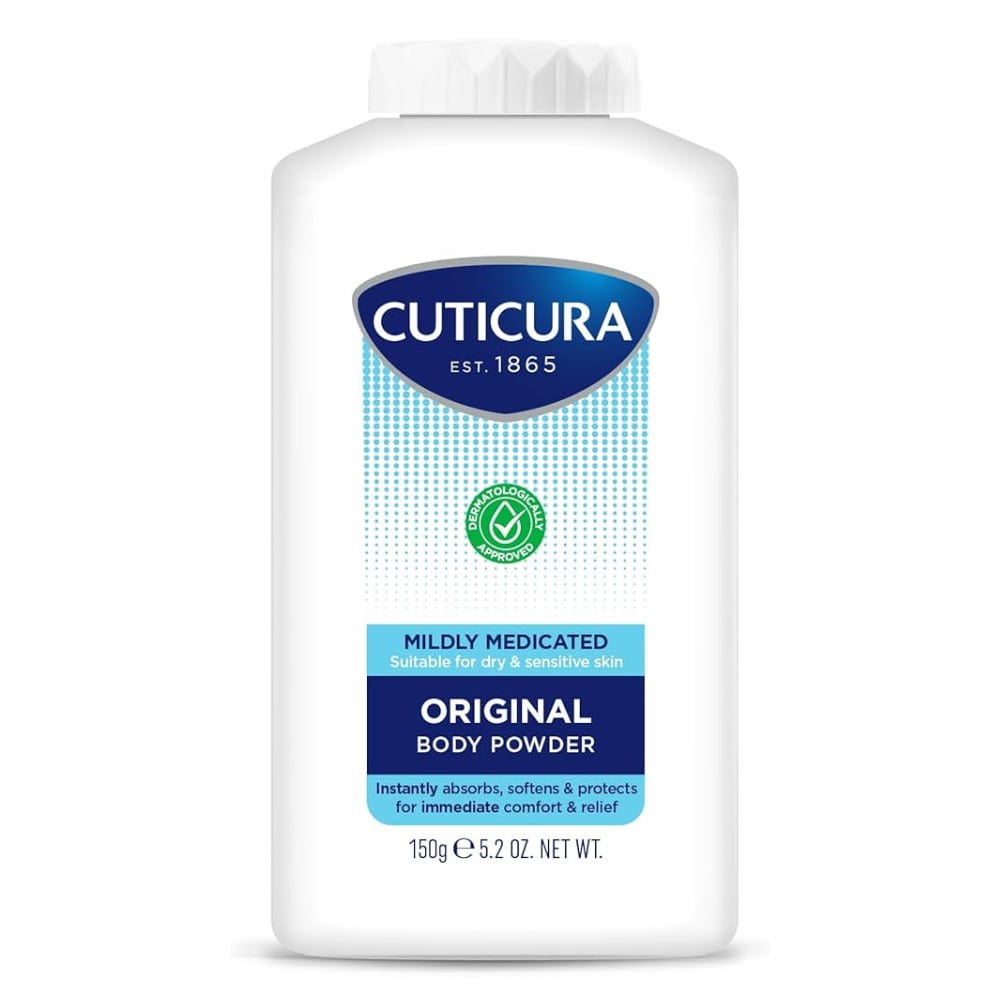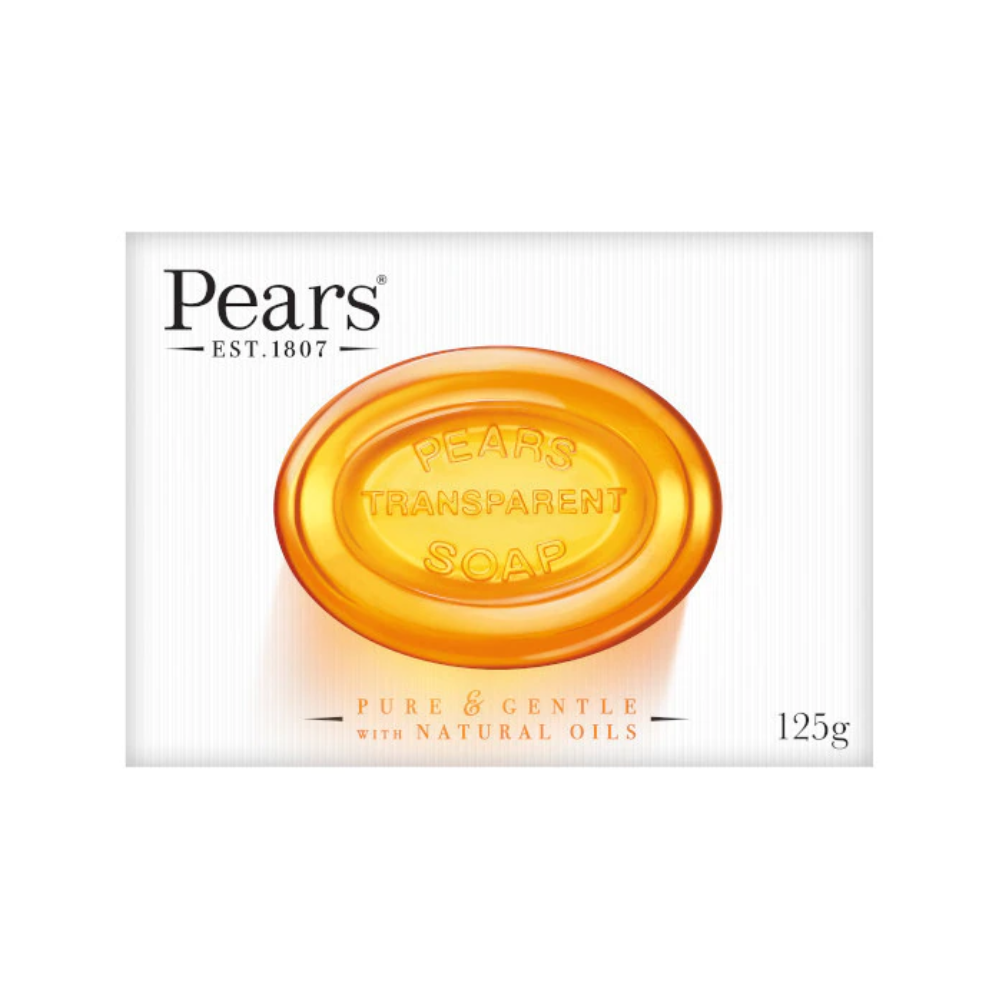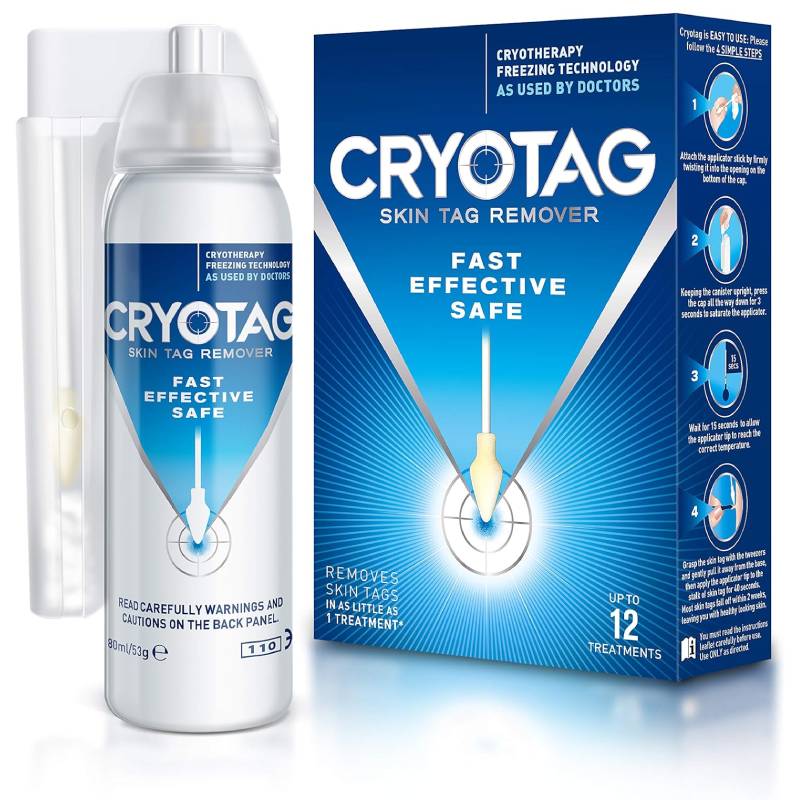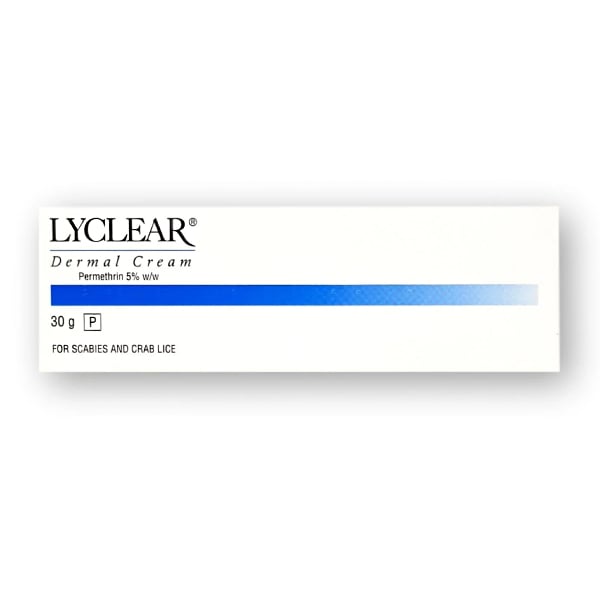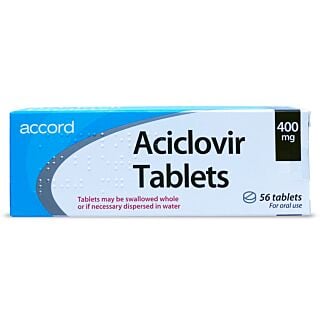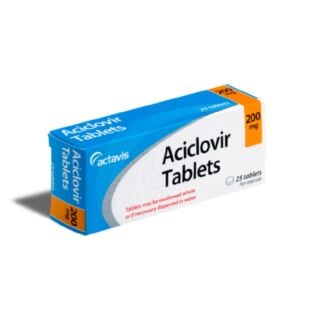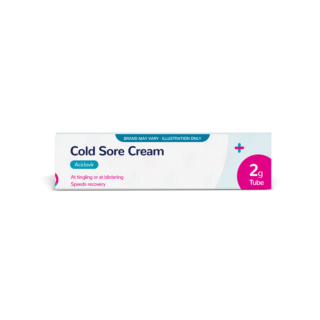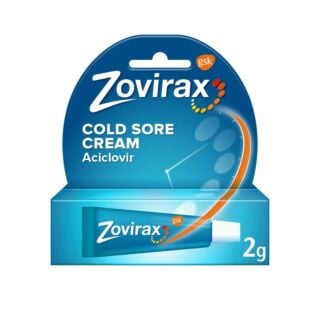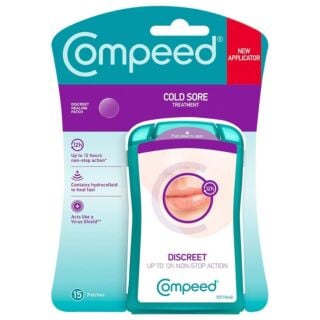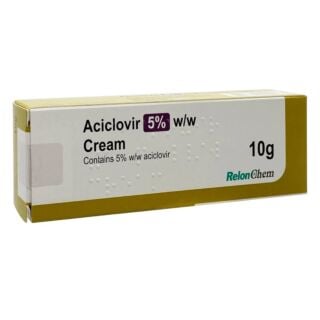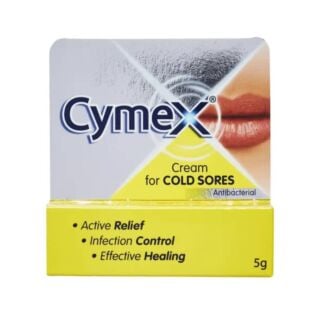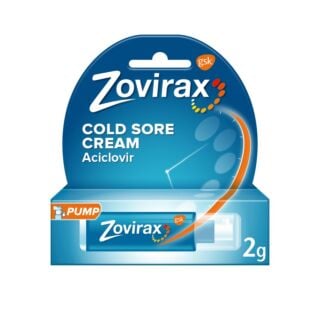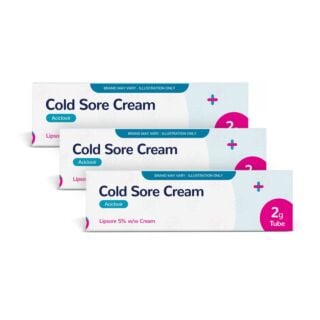Cold Sores
You may or may not know when you’ve become infected with the herpes simplex virus (HSV). But if you’ve developed a cold sore on the corner of the mouth, it’s a clear sign that you’re infected with HSV.1 … Read More See less
Thankfully, cold sores, on their own, aren’t usually something to worry about.1 However, there is no cure for the HSV virus.2,3 This means it can continue to affect you for the rest of your life.2 Furthermore, HSV poses particular risks to vulnerable populations, such as young children and people who have a weakened immune system.2,3
As a result, it’s important to understand cold sores, how to get rid of cold sores and what triggers cold sores. We cover all this and more right below the products.
What is a cold sore?
Cold sores are small, fluid-filled blisters that form in patches on or around the lips when you have an oral HSV infection.3–5 The blisters can also develop around your nose, cheeks or chin.5 When the blisters break, a scab forms over the area.3 A cold sore usually then heals within seven to ten days without leaving a scar.1,3
You may only have a cold sore once.4 However, some people find that the HSV infection causes recurrent outbreaks of cold sores in the same spot each time.3,4 Though, recurrent cold sores tend to be less severe than the first outbreak.
These can be triggered by:1,5–7
- Exposure to the sun or a cold wind
- Illness or infection
- A weak immune system
- Changing hormone levels (e.g. Due to menstruation or pregnancy)
- Stress
- Trauma to your mouth area
- Having a fever (high temperature)
- Tiredness and fatigue
It’s also common for adults to have a HSV infection and display no symptoms at all.1
Are cold sores contagious?
Cold sores are extremely contagious.5 They spread through direct contact with the cold sore, with the location of the infection dependent on which part of your body touched the cold sore.5
There are different types of herpes infections depending on the area of your body that’s affected:5
- Oral herpes –g. If you kiss someone who has a cold sore
- Genital herpes –g. If someone who has a cold sore performs oral sex on you
- Herpetic whitlow –g. If you touch a cold sore with your finger
Cold sores are contagious from when you first notice the symptoms until they completely heal (when the scab falls off), but most contagious when they burst.1,5 The infection can therefore spread for the duration of the outbreak.5
To avoid spreading cold sores to other people:1,4,5
- Do not kiss other people while you have a cold sore
- Avoid skin-to-skin contact with others while you have a cold sore
- Do not share items, such as towels and lip balm, that may have come into contact with a cold sore
- Wash your hands thoroughly after touching your cold sore
- Do not perform oral sex until your cold sore has completely healed
- Wash your hands before handling your contact lenses, or wear glasses until your cold sore has completely healed
However, there’s no need to take time off work or miss school if you or your child have a cold sore.1
Cold sores and infants
HSV in a young baby is known as neonatal herpes and can be extremely serious.8 A baby’s immune system is not developed enough to fight off the virus. 8 Indeed, the younger they are, the more vulnerable they are to serious infection. 8
Babies are most at risk of getting neonatal herpes in the first four weeks after birth. 8 They can be infected if someone close to them has a cold sore and kisses them or if they are breastfed by a person with a herpes blister on their breast.8
To protect babies from infection with HSV:8
- Do not kiss them if you have a cold sore
- Wash your hands before touching them
- Wash your hands before breastfeeding
- Cover up any blisters on your body
Cold sore symptoms
There are three main cold sore stages:3,4
- Tingling, itching and burning –occurs around the lips for a day or so before a small, painful spot appears
- Fluid-filled blisters – cold sores on the lips, around the nose or cheeks or cold sores inside the mouth. These can last for several days
- Scabbing –the blisters may merge and burst, leaving shallow open sores that ooze and scab over
A primary infection with HSV may also cause:1,3,5
- A fever
- Painful sores inside your mouth
- A red, swollen sore throat.
- Headache
- Muscle aches
- Swollen glands
- Dehydration
- Feeling sick
- An overproduction of saliva
These additional symptoms are most likely to develop in children but are rare in adults.1,3,5 They won’t usually accompany a recurrence of cold sores, however.1,3,5
When to see a GP
You don’t normally need to see your GP about a cold sore. However, you should make an appointment if:1,3
- The cold sore hasn’t started to heal within 10 days
- Your symptoms are very severe (e.g. A very large or painful cold sore)
- You or your child have swollen, painful gums and sores in the mouth
- You have a weakened immune system (e.g. Due to having hiv or diabetes)
- You have gritty or painful eyes
- You have a lot of recurrences
Complications of cold sores
Cold sores can cause complications in people with weakened immune systems, such as:1,8
- Skin infections – if the virus comes into contact with broken skin, due to a cut or a skin condition such as atopic dermatitis (eczema)
- Herpetic whitlow – when the virus spreads to your fingers
- Herpetic keratoconjunctivitis – causes sores to develop on your eyelids and swelling and irritation in your eye area
In adults and children, dehydration can occur if cold sores make it too painful to drink.1
Additionally, if neonatal herpes spreads to a baby’s organs, there’s a high chance they may not survive the infection.8
What causes cold sores?
Are cold sores always herpes? Yes.
Cold sores are caused by certain strains of HSV: type 1 (HSV-1) and type 2 (HSV-2).1,3 Most cases are caused by HSV-1, which spreads to the mouth area through close contact.1,3 However, genital herpes can be caused by HSV-2, after having oral sex with someone who has genital herpes.1,3
A HSV infection occurs when the virus enters your body through your skin.2 It travels to your nearby nerve cells and starts replicating.2 When your body realises there’s an infection, it sends out immune cells which cause the formation of blisters on your skin.2
The virus then lies dormant (inactive) until it is triggered and reactivated (woken up), leading to a recurrence.
How to treat cold sores
Most cold sores clear up on their own without any treatment.1
If you’re wondering what kills cold sores instantly, unfortunately such a cure doesn’t exist. However, there are very effective treatments available that can help to speed up the healing process if you get a cold sore.1,7 These include:1,5,7,9,10
- Topical antiviral medications – antiviral cold sore creams, ointments, cold sore patches or gels containing aciclovir or penciclovir can be applied to the affected area to speed up the healing process of an outbreak by about one day
- Oral antiviral medications – only available on prescription if you have severe recurrent cold sores. Cold sore tablets are not necessarily more effective than topical medications but are easier to take
- Paracetamol and/or ibuprofen – to treat the symptoms of pain and fever
- Mouthwash or lip barrier preparations – these are available over the counter and may provide some relief. However, they are not licensed for use in children
Sources
- https://www.nhsinform.scot/illnesses-and-conditions/mouth/cold-sore/
- https://my.clevelandclinic.org/health/diseases/22855-herpes-simplex
- https://www.mayoclinic.org/diseases-conditions/cold-sore/symptoms-causes
- https://www.wmic.wales.nhs.uk/wp-content/uploads/2023/07/CAS-PIL-Cold-Sores-v3-18.07.23.pdf
- https://www.wmic.wales.nhs.uk/wp-content/uploads/2023/07/CAS-PIL-Cold-Sores-v3-18.07.23.pdf
- https://my.clevelandclinic.org/health/symptoms/cold-sores
- https://www.hopkinsmedicine.org/health/conditions-and-diseases/cold-sores
- https://www.nhs.uk/conditions/neonatal-herpes/
- https://www.ncbi.nlm.nih.gov/books/NBK525782/
- https://cks.nice.org.uk/topics/herpes-simplex-oral/management/herpes-labialis-gingivostomatitis/

Free delivery when you spend over £39

100% discreet delivery for every item ordered

Fully regulated UK pharmacy
Are cold sores and herpes the same thing?
Cold sores and herpes are very similar, both forming sores or blisters and causing itching, burning, or tingling in the affected area.
They’re so similar because they’re caused by the same virus, which is called herpes simplex.
The herpes virus doesn’t have a cure, but it’s harmless and if you catch it it will just live in one area of your skin, usually around your mouth or genitals, and make itself known every so often.
Herpes simplex is very contagious when you have sores or blisters, so you’ll have to be very careful not to pass it on to anyone else during a flare-up.
It’s passed on through skin-to-skin contact, such as kissing or during sex, so it’s vital that you take notice when you think you’re about to get herpes sores and take the necessary precautions to keep the virus from spreading to someone else.
What is a cold sore?
Cold sores are small blisters that usually appear on your lips, although they can appear anywhere on the face.
They are often grouped together and appear on or around your lips due to the herpes simplex virus.
Cold sores are caused by a virus that lives in your skin, flaring up every so often to form itchy, contagious blisters.
When this blister bursts, the cold sore will scab over, usually disappearing in a couple of weeks without leaving a scar.
They’re very contagious and can be spread by close contact like kissing or sharing cutlery.
When you have the virus you can get a cold sore at any time, although you may find that some things, like illnesses or your period, can cause flare-ups.
Cold sores are harmless, although they can feel itchy, burning, and irritating, and they’ll usually clear up on their own within 10 days.
However, if your cold sores are very large, painful, or keep coming back, you may benefit from a prescription treatment like aciclovir to help keep them under control.
Are cold sores contagious?
Yes, cold sores are very contagious and are spread through close contact like kissing, oral sex or sharing cutlery.
Even when your cold sore scabs over, it will still be contagious, but it’s at its highest in the blister form when it’s wet and oozing.
You should refrain from touching your cold sore (apart from when you’re applying treatments) and avoid close contact with others to avoid spreading the virus onto surfaces and to other people.
Are cold sores dangerous for babies?
Cold sores are usually harmless to older children, but they can be very dangerous to babies as they’re immune systems aren’t fully developed.
If you’re a caregiver with a cold sore, it’s vital that you do not kiss or share things such as spoons and cups with your baby - but don’t worry, the virus cannot be transmitted via breast milk.
If you think your baby has a cold sore, they will need medical assistance immediately as the consequences can be severe.
Can benzocaine be used for cold sores?
Some benzocaine products can be used to soothe pain and irritation caused by cold sores, but others are better at easing mouth ulcers, toothache, and other oral pain.
If you experience cold sores and are looking for a way to ease the irritation caused by them, then you should ask your doctor or pharmacist to recommend a product that’s going to be most effective for you.
Can lip balms treat cold sores?
If you’re looking for a lip balm that can provide relief for your cold sore, it will need to contain a natural analgesic like menthol.
If you want to get rid of your cold sore fast, find a lip balm that contains docosanol, an antiviral agent which treats the cold sore when it’s in its early stages to stop it in its tracks.


